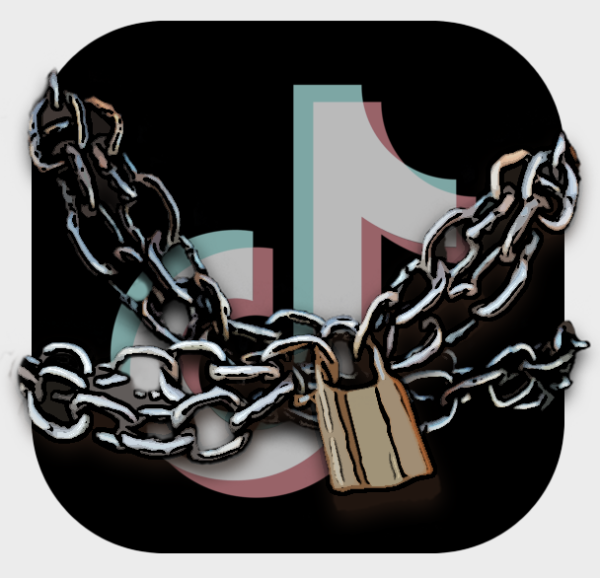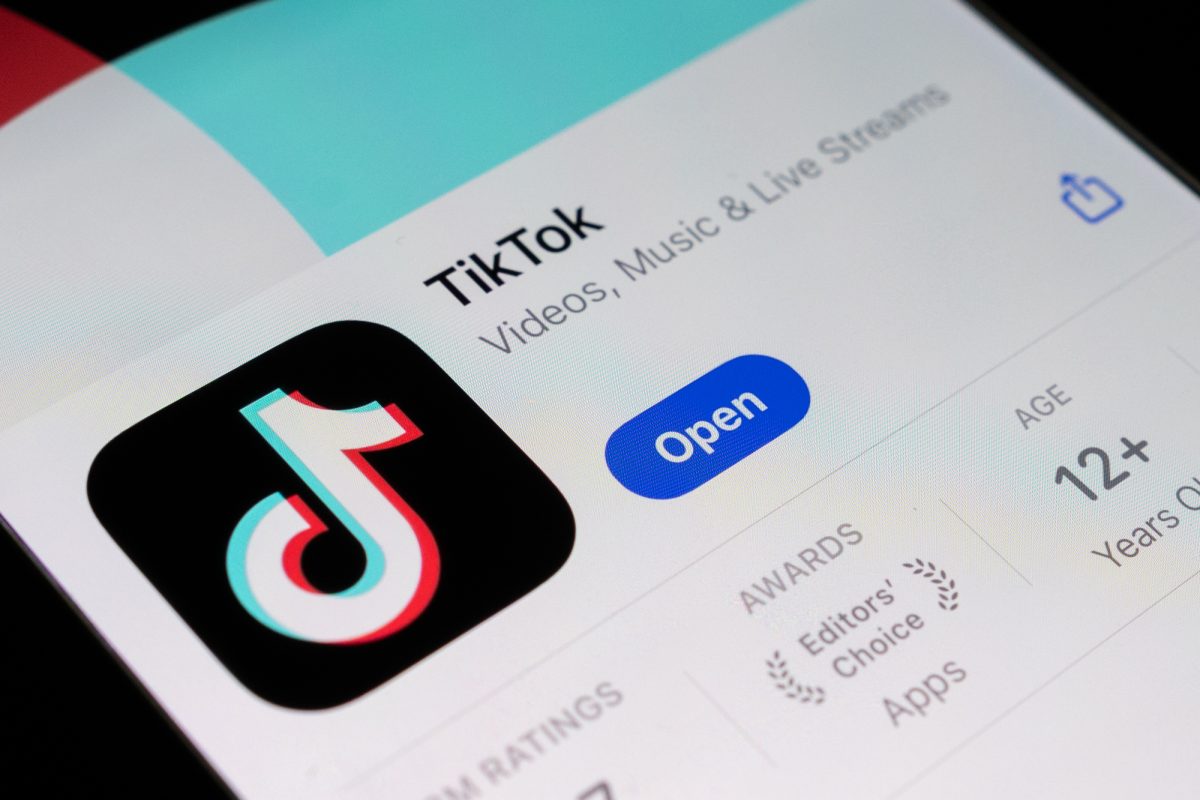Now more than ever, the most-consumed media in our society has become a radical infusion of information and entertainment.
Swipe once, you get Skibidi Toilet brainrot; swipe twice, you’ll get a political ad for the presidency; swipe a third time, you’ll see propaganda disguised as a portrayal of the facts, all with a split screen of someone cleaning a rug so your short attention span can be captured long enough to watch the video.
Of course, this isn’t all of modern media. TikTok, YouTube Shorts and Instagram Reels are the primary catalysts of this style of infotainment; each creating a highly-curated feed of short-form videos to keep users watching — regardless of how unsavory the content shown happens to be.
However, there’s a key difference between TikTok, YouTube and Instagram that’s become the subject of recent controversy: TikTok is owned by a Chinese company, whereas both Instagram and YouTube are American owned.
Normally this wouldn’t be a huge issue, but the United States government is once again invoking the specter of “national security” in the TikTok bill which came to pass almost a year ago — the same bill which recently went into effect on Jan. 19. The bill’s mandate is simple: ByteDance — the company that owns TikTok — must sell TikTok or it will be prohibited from operating the platform in the United States. President Trump is planning to delay the bill’s deadline to give ByteDance additional time to sell, but it will ultimately come down to the final dilemma of selling or being banned.
Although concerns about national security may initially seem strong enough to impose such a ban, the reality is that banning TikTok is one of the most exemplary showings of state overreach in modern times. It accomplishes nothing significant to protect American national security interests while reaching far beyond what the federal government should have in its purview.
Let’s start with the obvious.
Most people are aware of the fact that social media platforms collect our data. Anyone who uses a social media app has to agree to the terms and conditions, permissions and specific data collection policies set by a social media company in order to use that company’s app. Even something as simple as uploading a video or image onto a social media s

ite could give that site access to your entire photo roll, among other things. In short, their policies allow them to gather almost all the information they can about you.
So what do these companies do with such an extensive collection of data? They use it to help advertisers run marketing campaigns by giving those advertisers specific demographics they can target for their products.
It is this simple fact that makes the issue of who collects the data irrelevant, and therefore eliminates the reason to ban TikTok specifically.
If any third party can use your data to identify specific demographic information about you, there’s no reason to think the data coming from TikTok is any worse than the data coming from Google or Meta if any of that data can be accessed by the same business or state actors. The Chinese, Iranian, or North Korean governments could easily obtain very specific demographic and locational information just by using American platforms, and that’s through official means.
If the Chinese Communist Party, or CCP, really wanted to pay off a Meta employee or hack Google’s servers, they could probably do that too. So it doesn’t really matter if TikTok is Chinese owned or not — the people who want the data can get it, and they can get it through American companies.
This is all underscored by another important yet often undiscussed consideration: Even if TikTok is especially useful to the CCP in collecting information when compared with other social media companies, almost none of the information it currently collects is useful for the purpose.
Why is this exactly? Because former President Biden already implemented the “No TikTok on Government Devices Act” in 2023, which essentially prohibited TikTok from being used on devices owned by the Federal government. These devices are far more critical to national security than any combination of random phones owned by your average TikTok user.
If the current government really wishes to protect national security, it can do so by forcing defense contractors and anyone else who would have access to national security secrets to simply use government-owned devices. No national ban needed.
It’s not just about the national security risks, either. Despite his vested interest in the continued success of his business, the ByteDance CEO’s statement about the app rings true: TikTok is a platform on which people can express themselves in new and unique ways, and banning it constitutes an arbitrary limitation of free speech.
Our current social media environment is something close to an oligopoly: very few investors control a large share of the market, and if TikTok is banned those people will gain even more concentrated power.
We need to ask ourselves an important question: Why are we afraid of a company on the other side of the planet having our information when power is being concentrated in the hands of people who are currently collaborating with the U.S. government and have done so in the past? Why should we be afraid of a government that has nothing to do with us instead of one which could be on our doorstep in 20 minutes?
I don’t know about you, but I don’t think trad wives, gym bros and thirst trap creators have critical national security information. If they did, then it would already be over for all of us.
Kaleb Blizzard is a philosophy sophomore and opinion writer for The Battalion.










